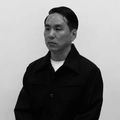Interviews
Oeko-Tex Standard 1000 evaluates textile production facilities
25 Apr '09
2 min read
The International Oeko-Tex Association is known around the world for its Oeko-Tex Standard 100 which certifies that textile products are tested to be free from harmful levels of more than 100 substances believed to be dangerous to humans.
Oeko-Tex is also rapidly gaining global acclaim for its Oeko-Tex Standard 1000 which evaluates textile production facilities and certifies that they are employing best practices in environmental and social management.
“The Oeko-Tex Standard 1000 gives manufacturers confidence that their production facilities are operating according to the highest global standards for environmental and social responsibility,” says Dr. Manfred Wentz, the U.S. director for Oeko-Tex. “While the Oeko-Tex Standard 100 certifies the textile products themselves, the Oeko-Tex Standard 1000 certifies the production facilities that make those products.”
The International Oeko-Tex Association developed both the Standard 100 and the Standard 1000 certifications in the 1990's. The Oeko-Tex Standard 100 launched in 1992 in response to growing consumer concern about textile safety. The Oeko-Tex Standard 1000 was introduced in 1995 to certify that textile production facilities meet strict environmental and social guidelines.
Oeko-Tex Standard 1000 certification involves a comprehensive review of a facility's operations that helps plant management identify strengths as well as areas that require changes to be in line with accepted best practices. Plants are evaluated against environmental and social criteria such as:
- No harmful substances in production processes
- Responsible energy consumption
- Effective waste water and exhaust controls and treatment
- Minimal noise and dust pollution levels
- Beneficial workplace safety and workforce management programs
- No child labor
- At least 30% of output production is Oeko-Tex Standard 100 certified
- Reliable quality control mechanisms and procedures
- Compliance with all statutes and governmental regulations
Oeko-Tex Standard 1000 certification acknowledges quality control, social and environmental accreditations that facilities may have put in place prior to seeking Oeko-Tex Standard 1000 certification, such as ISO or WRAP. Plants that use Oeko-Tex Standard 100 certified raw materials or buy from Oeko-Tex Standard 1000 certified suppliers are also a step ahead in the certification process.
Oeko-Tex is also rapidly gaining global acclaim for its Oeko-Tex Standard 1000 which evaluates textile production facilities and certifies that they are employing best practices in environmental and social management.
“The Oeko-Tex Standard 1000 gives manufacturers confidence that their production facilities are operating according to the highest global standards for environmental and social responsibility,” says Dr. Manfred Wentz, the U.S. director for Oeko-Tex. “While the Oeko-Tex Standard 100 certifies the textile products themselves, the Oeko-Tex Standard 1000 certifies the production facilities that make those products.”
The International Oeko-Tex Association developed both the Standard 100 and the Standard 1000 certifications in the 1990's. The Oeko-Tex Standard 100 launched in 1992 in response to growing consumer concern about textile safety. The Oeko-Tex Standard 1000 was introduced in 1995 to certify that textile production facilities meet strict environmental and social guidelines.
Oeko-Tex Standard 1000 certification involves a comprehensive review of a facility's operations that helps plant management identify strengths as well as areas that require changes to be in line with accepted best practices. Plants are evaluated against environmental and social criteria such as:
- No harmful substances in production processes
- Responsible energy consumption
- Effective waste water and exhaust controls and treatment
- Minimal noise and dust pollution levels
- Beneficial workplace safety and workforce management programs
- No child labor
- At least 30% of output production is Oeko-Tex Standard 100 certified
- Reliable quality control mechanisms and procedures
- Compliance with all statutes and governmental regulations
Oeko-Tex Standard 1000 certification acknowledges quality control, social and environmental accreditations that facilities may have put in place prior to seeking Oeko-Tex Standard 1000 certification, such as ISO or WRAP. Plants that use Oeko-Tex Standard 100 certified raw materials or buy from Oeko-Tex Standard 1000 certified suppliers are also a step ahead in the certification process.
Oeko-Tex
Popular News
Leave your Comments
Editor’s Pick
Yohan Lawrence
Joint Apparel Association Forum (JAAFSL)
Pratik Gadia
The Yarn Bazaar - Filosha Infotech Private Limited
































-Ltd..jpg?tr=w-120,h-60,c-at_max,cm-pad_resize,bg-ffffff)





.jpg?tr=w-120,h-60,c-at_max,cm-pad_resize,bg-ffffff)
.jpg?tr=w-120,h-60,c-at_max,cm-pad_resize,bg-ffffff)






